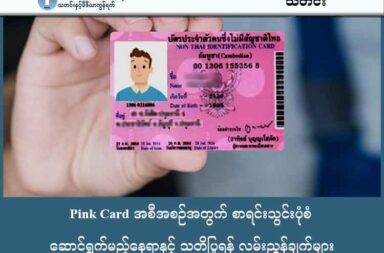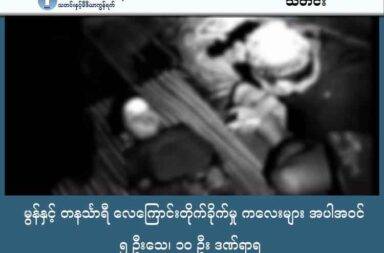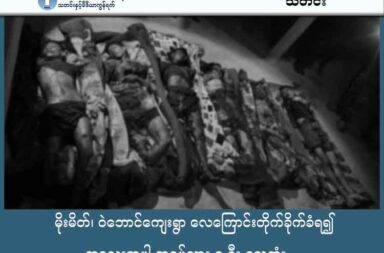PPST: Basic Principles of Federalism Need to Be Agreed Upon Before Elections
By NETWORK MEDIA GROUP (NMG)
Friday, October 11, 2019
Basic principles of federalism need to be agreed to before Burma’s 2020 elections, the temporary leader of the Peace Process Steering Team (PPST) said this week.
“We need to approve the basic principles of the 21st Century Panglong Conference. Then there will be an effective functioning of the peace process and the building of a federal Union post-2020,” Gen Yawd Serk, of the Restoration Council of Shan State and the current PPST head, said.
The statement was made in his opening speech at the PPST meeting held in Chiang Mai, Thailand on Thursday.
“The effects of the 2020 general elections will impact the peace process. Therefore, we need to have careful consideration in working for the peace process during that time,” he said.
Khun Myint Tun, chairperson of the Pa’O National Liberation Organization (PNLO), called for consistency in the implementation of the peace process amid the upcoming elections. Burma’s government shifted from an administration led by U Thein Sein to the National League for Democracy after the 2015 elections.
“The government, Parliament, army, EAOs [ethnic armed organizations] and political parties are stakeholders in the peace process and have been working together for this. Therefore, if the stakeholders change, the effect will more or less impact the implementation of this peace process,” he told NMG.
Khun Myint Tun added that securing an agreement with the current government to work toward building a federal Union was necessary.
“We want both the Peace Conference and the Union Parliament to approve this agreement,” he explained. “After the Union Parliament approves the federal principles, we will have a guarantee for the peace process even if the government changes. Then we can continue to implement the peace process.”
The PPST’s three-day meeting is being held from October 10-12, with nearly 70 representatives of Nationwide Ceasefire Agreement (NCA)-signatory ethnic armed organizations attending the proceedings in northern Thailand. Issues under discussion include the convening of official peace talks with the government, a session of the 21st Century Panglong Peace Conference in 2020, and overcoming issues on which parties remain deadlocked.
“It’s important to stop the sound of bombs exploding and guns shooting during peace negotiation talks. It’s also important not to ‘make fire in one hand and water in the other hand,’” Gen Yawd Serk said as the meeting commenced.
Gen Yawd Serk also made reference to the 2008 Constitution in his speech, which is described by critics as anti-federal and as consolidating the political power of the military.
“The efforts for the 2008 Constitution changes in Parliament and our efforts for constitutional change through the NCA path need to be harmony. We have to make careful considerations in the implementation of the NCA. We need to not be ‘radical’ when implementing the process,” he said.
Representatives of each EAO will have separate informal meetings with the government’s Peace Commission delegation in Chiang Mai after the PPST session is finished.
The NCA signatory EAOs include the RCSS, PNLO, All Burma Students Democratic Front, Arakan Liberation Party, Chin National Front, Democratic Karen Buddhist Army, Karen National Liberation Army-Peace Council, Karen National Union, Lahu Democratic Union and the New Mon State Party.


